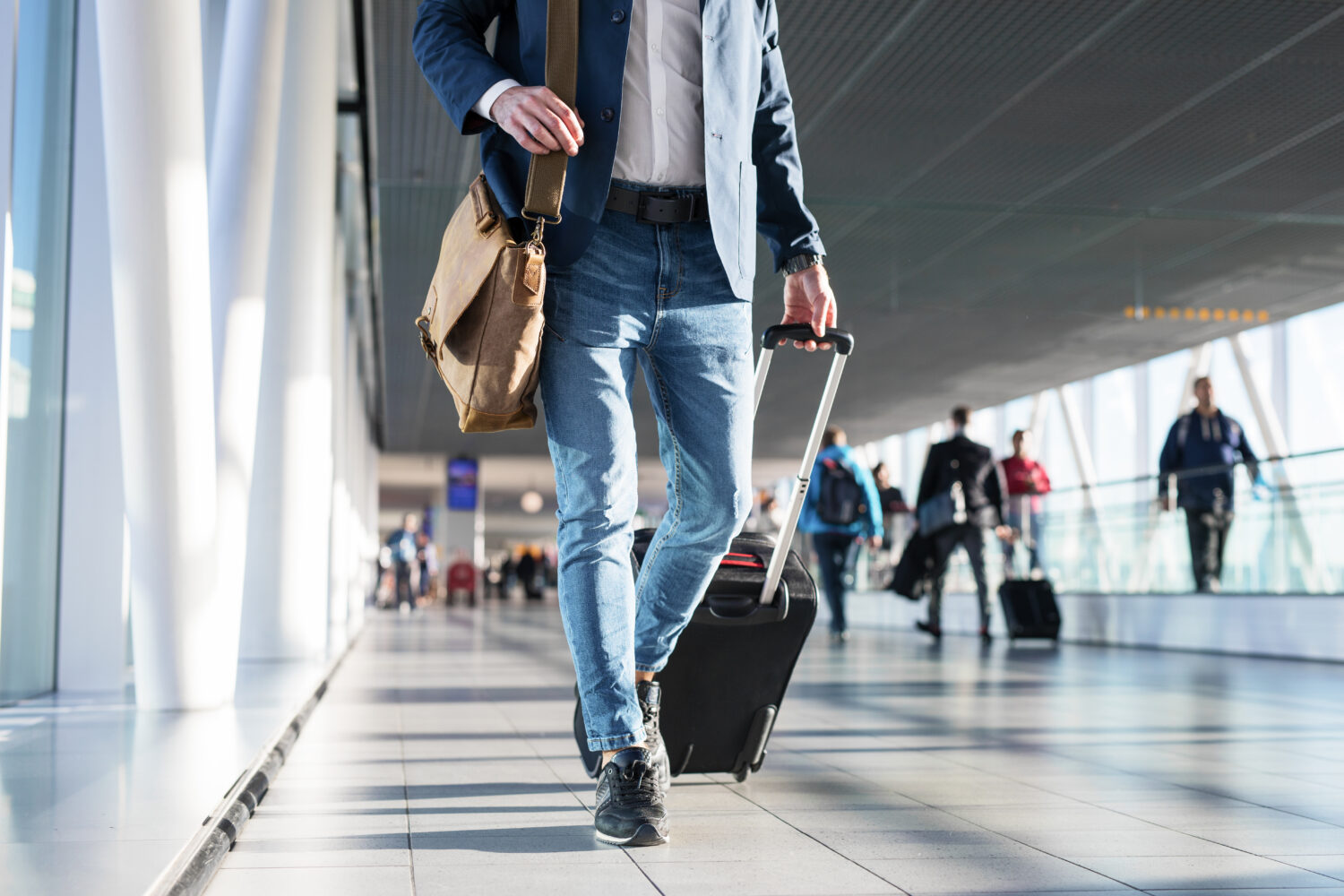[ad_1]

Business travel looks poised for a significant revival in 2024. The Global Business Travel Forecast by CWT and the Global Business Travel Association (GBTA) predicts that business travel and events costs will remain elevated through 2024.
This is due to rising fuel prices, labour shortages, and supply chain challenges. However, the report also suggests that the pace of increase will be more moderate compared to the steep increases seen in 2022.
“Looking forward, prices seem to be levelling off with much milder increases projected over the next 12 to 18 months. We could now be looking at the true new cost of travel,” says Patrick Andersen, CWT’s Chief Executive Officer.
The evolution of travel costs
The way businesses manage travel expenses is also evolving.
The pandemic severely impacted business travel, with a substantial reduction in travel activities in 2020 and 2021. A Deloitte report from 2022 highlighted that corporate travel did not meet most companies’ expectations in the second half of 2021.
Many expected to reach half of 2019 spend levels by the end of the year, but only 8% achieved this due to the Delta and Omicron COVID-19 variants. However, the report also projected a steady, though not rapid, rise in business travel spend in 2022, reaching 36% of 2019 levels in Q2 and 55% by year-end??.
There has also been a notable increase in travel costs. According to the Global Business Travel Association, the average ticket price (ATP) for flights booked for business travel rose dramatically by 72.2% in 2022 compared to the previous year, significantly surpassing 2019 levels.
Similarly, hotel average daily rates (ADRs) also saw a substantial increase, rising 29.8% year-over-year in 2022??. These increases are attributed to the pent-up demand, reduced capacity due to labor shortages and supply chain issues, and increased costs in labor, energy, and supplies for hotels.
Business travel trends have also shifted, with new travel categories emerging, such as “super commuting,” where employees travel longer distances to work occasionally due to remote work arrangements. Additionally, corporate travel policies are being modernised to accommodate these new patterns and the broader adoption of flexible work arrangements??.
Sustainability concerns and technological advancements are also increasingly influencing business travel decisions. Companies are considering the environmental impact of travel and exploring technology-driven alternatives and efficiencies.
Managing the costs of business travel
CFOs now face a conundrum as they plot the fiscal course of 2024’s business travel. It will require a delicate dance of balancing the books while keeping the wheels of commerce turning, a dance that demands astuteness and agility in equal measure.
Utilising new technology
Foremost in this fiscal foray is the pivot to technology. CFOs are increasingly leaning on sophisticated travel management systems that offer not just data but insights – a sort of GPS for navigating the complexities of corporate travel expenses. These systems provide a real-time view of spending, allowing for nimble adjustments to travel strategies.
One of the key technologies being used is sophisticated booking and expense management systems. These systems provide a comprehensive platform for managing all aspects of travel, from booking flights and accommodations to tracking expenses. They often come with features like integrated approval workflows, real-time expense reporting, and analytics capabilities. This enables CFOs to have a bird’s eye view of travel spending and identify areas where savings can be made.
Adaptable policies are a must
These systems are increasingly being integrated with corporate travel policies, ensuring compliance and helping to prevent unauthorized spending. They can be configured to flag or block bookings that don’t comply with company travel guidelines, such as bookings at non-preferred hotels or flights outside of set budget limits.
Travel policies, once set in corporate stone, are now fluid, evolving documents. These policies are being recalibrated not just for cost-effectiveness but also for sustainability – a nod to the growing chorus demanding corporate responsibility towards the environment.
CFOs are also turning their gaze inwards, focusing on employee education and policy compliance. It’s an acknowledgment that the human element is critical in managing travel costs. Employees are being coached to make more financially and environmentally sound travel decisions.
With a growing focus on sustainability, some companies are using technology to track the environmental impact of their travel. These tools can calculate the carbon footprint of different travel options, helping companies make more environmentally friendly travel choices.
Do not forget to negotiate
Negotiating with travel providers is emerging as a pivotal strategy. In a market where every penny counts, CFOs are leveraging their companies’ travel volume to secure more favourable rates from airlines, hotels, and car rental firms.
The use of predictive analytics and data visualization tools is also on the rise, in this arena. These tools analyse historical travel data to forecast future travel trends and spending. By understanding these patterns, CFOs can negotiate better rates with travel providers and make more informed decisions about travel budgets and policies.
The Hybrid approach
The post-pandemic era has ushered in a new understanding – not all meetings warrant a trek across continents. CFOs are championing a hybrid model, blending virtual and in-person meetings. This approach isn’t just fiscally prudent; it also aligns with a world increasingly conscious of its carbon footprint.
AI and ML
Finally, AI and machine learning are beginning to play a role in travel management. These technologies can automate routine tasks, such as travel booking and expense categorization, and provide more advanced insights into spending patterns and potential savings opportunities.
Subscribe to get your daily business insights
Was this article helpful?
YesNo
[ad_2]
Source link
